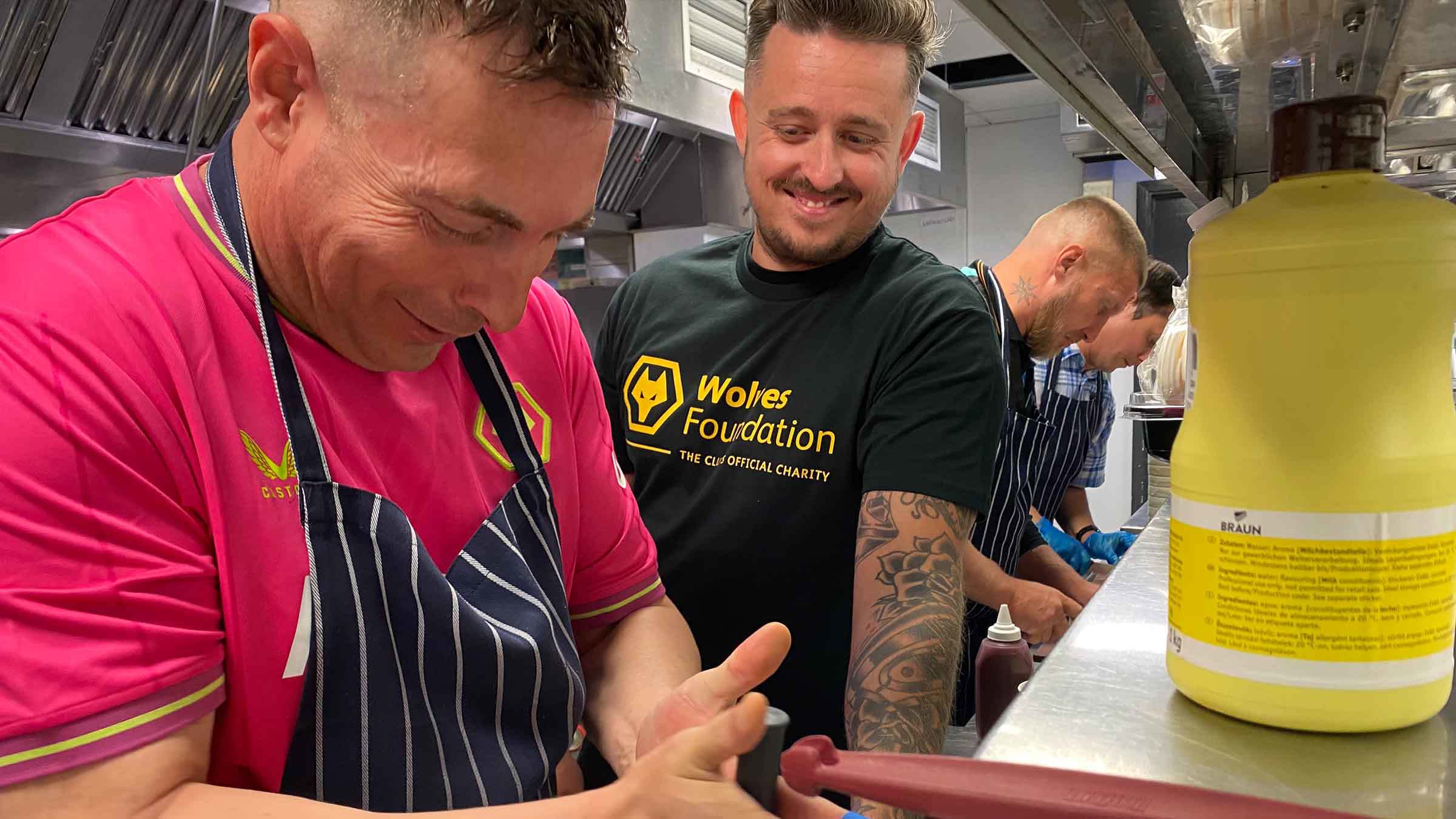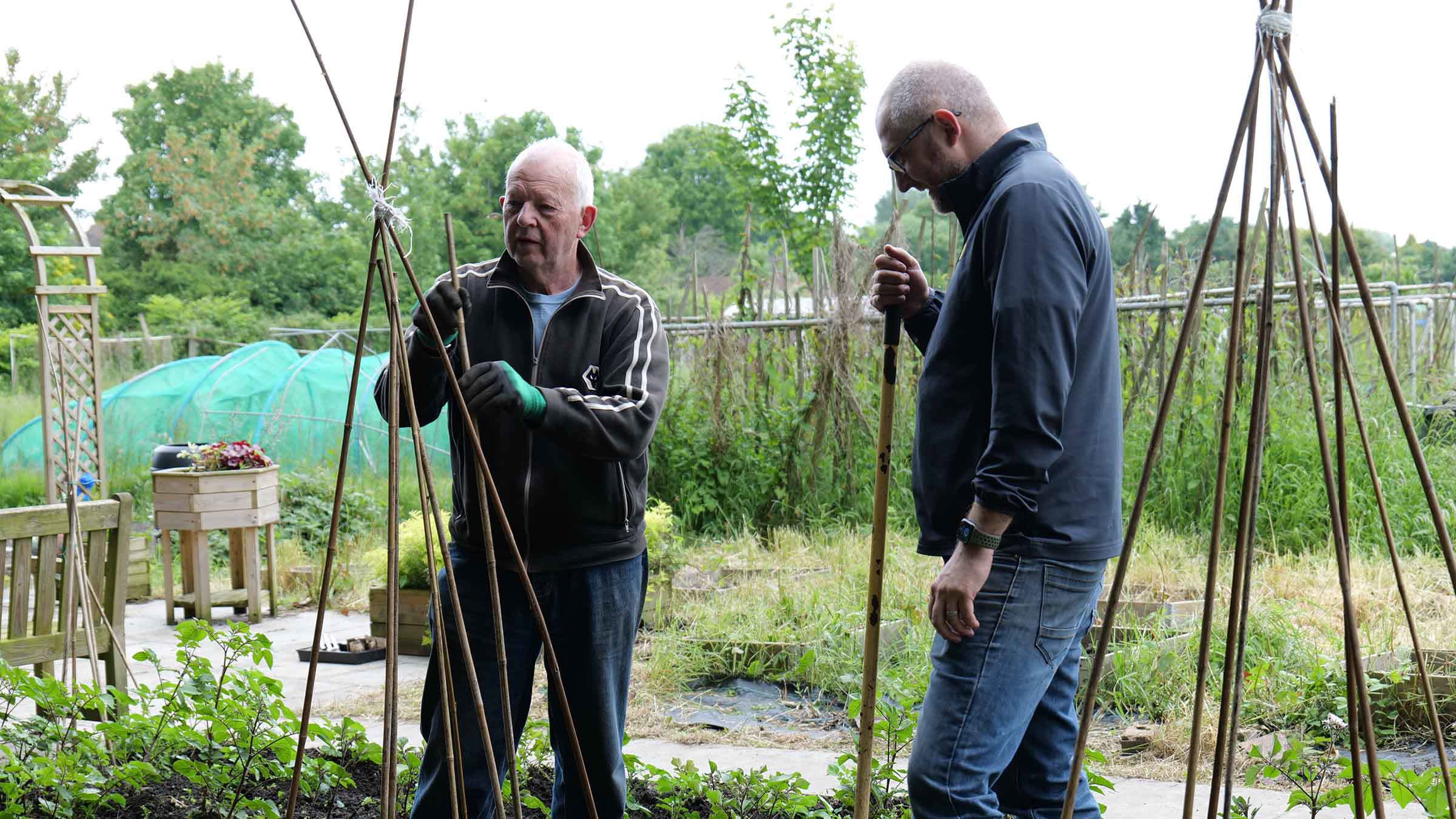Wolves Foundation’s allotments, situated in Park Village in Heath Town, are continuing to provide a regular source not just of fresh and healthy produce but also a sense of purpose and opportunity for the charity’s Head 4 Health participants.
This week is National Allotment Week, organised by the National Allotment Society, highlighting the benefits of connecting with nature and the mental and physical advantages of getting out and about in the Great Outdoors.
For the Foundation, the two allotments are offering a vital weekly opportunity for those attending Head 4 Health to get together and enjoy the challenge of working together to grow fruit and vegetables which can be both shared or donated to other causes within the community.
“We have had our best year so far on the allotment,” reveals Foundation health officer Steve Maiden, who oversees Head 4 Health.
“We’ve got a really loyal group of five or six who come along every week, who enjoy the activity and fresh air and also seeing something at the end of it.
“We have managed to grow a lot of different produce this year, including radishes, garlic, leeks, onions, lettuces and carrots.
“And that produce has also gone to help people as well, including some of it to the Good Shepherd charity and another batch to the Central Community Shop.
“Last season, some of it was used in hospitality at the Premier League match with Manchester United, and was enjoyed by Sir Alex Ferguson, so that was like a trophy in our cabinet!
“The group who work on the allotment are all from different backgrounds, and we’ve got people who have suffered brain injuries, and so getting together on this project has delivered such a positive impact.
“They like to plan ahead as well, and we’re already planning now for the winter growth season and what we can plant for that.”

The theme for this year’s National Allotment Week is Celebrating Biodiversity, and there are several initiatives linked to the allotment which are aimed at encouraging sustainability.
A number of raised beds have been introduced using pallets which the Foundation had acquired, as well as bird boxes and bug hotels, which have also become a site for butterflies.
And, as explained by health officer Dan Webster, who also works on Head 4 Health and the allotment project, sustainability can also equal creativity and innovation.
“We had a lot of polythene plastic bags left which had been used to deliver kit, so have used those as lining on the raised beds, incubation to cover the plants,” he says.
“And with those beds, one of the guys who suffered a head injury and is a carpenter by trade, did a great job building them, so there are so many different strands involved.”
One constant source of support for the allotment project and Head for Health in general is Wolves head chef Luke Hitchins, from Levy UK, who makes regular visits to get involved and offer advice, as well as leading and supporting on events.
He has previously led a cooking class for one of the Head 4 Health cohorts and, in advance of National Allotment Week, welcomed the participants who work on the allotments to cook and prepare a chicken dinner with vegetables they had grown themselves.

Foundation ambassador and home chef influencer Mitch Lane also came to Molineux to help with the meal, and the participants’ families were able to watch via a live stream in the next room before everyone sat down to eat together.
“It was a bit lively having to execute the bright idea of streaming our prep work and cooking so the families could watch us working, but eventually we got it sorted,” says Luke.
“It was another really worthwhile link-up with the Head 4 Health allotment team and the chance to sit and enjoy a roast chicken dinner and strawberry Eton Mess.
“The Foundation deliver such an important job with the Head 4 Health project, and I am always delighted to be able to help out whenever I can.
“The allotment provides the participants with a really positive opportunity not just to meet up and enjoy each other’s company but work together with the end result of growing fruit and vegetables which can then be used to support people within the community.”



























